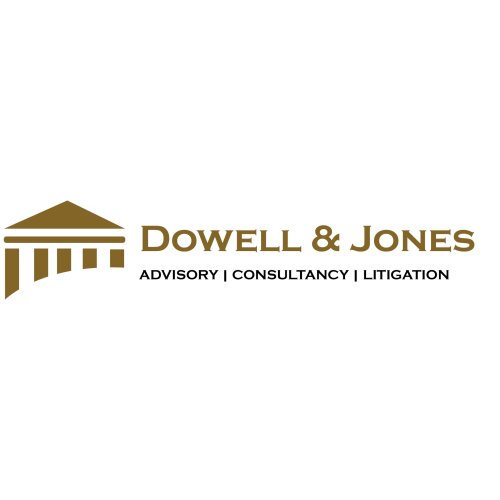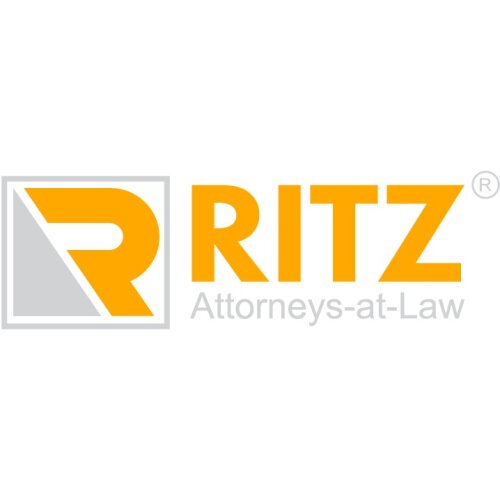Best Restructuring & Insolvency Lawyers in Blantyre
Share your needs with us, get contacted by law firms.
Free. Takes 2 min.
List of the best lawyers in Blantyre, Malawi
About Restructuring & Insolvency Law in Blantyre, Malawi
Restructuring and insolvency law in Blantyre, Malawi addresses the legal processes that businesses and individuals face when struggling with financial distress. Insolvency typically refers to a situation where a person or business cannot pay their debts as they become due. Restructuring involves reorganising the affairs, assets, liabilities, and operations of an indebted entity to restore its financial standing and ensure long-term viability. In Blantyre, these matters are guided by a combination of statutory law, such as the Bankruptcy Act and the Companies Act, and relevant court decisions. Legal processes are handled in the High Court, Commercial Division, with guidance and oversight from qualified professionals.
Why You May Need a Lawyer
There are several situations where seeking professional legal advice for restructuring and insolvency becomes crucial. Common scenarios include:
- Burdened businesses needing to restructure operations or debts to avoid closure
- Individuals or companies facing creditor lawsuits or aggressive debt recovery efforts
- Directors and shareholders concerned about their legal duties and liabilities
- Creditors seeking to recover debts from insolvent entities
- Negotiating settlements, enterprise voluntary arrangements, or composing payment plans
- Managing assets or liquidation proceedings where clear legal advice is essential to comply with the law and minimise losses
- Advising on employee issues, property transfers, and contracts during restructuring
Because insolvency and restructuring can affect many stakeholders and involve complex legal procedures, having a lawyer ensures that rights are protected and obligations are fulfilled according to local laws.
Local Laws Overview
Restructuring and insolvency in Blantyre are governed by several key pieces of legislation and rules. The main statutes include the Bankruptcy Act (Cap 11:01 of the Laws of Malawi), Companies Act (2013), and associated procedural rules. Notable legal aspects include:
- Bankruptcy Proceedings: Governed by the Bankruptcy Act, which explains how individuals may be declared bankrupt, including the process for asset distribution and discharge from debts.
- Corporate Insolvency: The Companies Act sets out provisions for the winding up of companies, both by the courts and voluntarily.
- Creditors’ Rights: Creditors have a right to petition the court for bankruptcy or winding up where debtors fail to pay, according to set thresholds.
- Restructuring Mechanisms: Legal frameworks exist for schemes of arrangement, voluntary arrangements, and compromises with creditors to help distressed businesses recover without liquidation.
- Role of Liquidators and Trustees: These are court-appointed professionals who manage the process of collecting, preserving, and distributing assets during insolvency.
- Cross-Border Insolvency: Malawi’s laws accommodate certain situations involving foreign creditors and assets held both within and outside the country.
- Debtor Protections: The court has discretion in granting protection from creditor actions while insolvency orders or restructuring plans are in development.
Frequently Asked Questions
What is the difference between bankruptcy and insolvency?
Insolvency is a financial state where a person or business cannot pay their debts on time. Bankruptcy is the formal legal declaration of insolvency for individuals, usually resulting in the appointment of a trustee to administer the estate and repay creditors as possible.
Who can start insolvency proceedings in Blantyre?
Both creditors and debtors can initiate insolvency proceedings. Creditors may petition the court for the winding up of a company or the bankruptcy of an individual. Debtors can also voluntarily declare insolvency if they are unable to pay debts.
Can a business avoid liquidation through restructuring?
Yes. The law allows for restructuring options such as schemes of arrangement and voluntary agreements with creditors. Engaging in restructuring early can help avoid a full liquidation process.
Are directors personally liable for company debts?
Generally, directors are not personally liable for the debts of a limited company, provided they have acted lawfully. However, if directors engage in fraudulent, reckless, or wrongful trading, they may become personally responsible.
How long does the insolvency process take?
The timeline varies depending on the complexity of the case, amount of assets and debts, and level of cooperation from all stakeholders. Simple cases can be resolved in a few months, but more complex cases, especially those involving litigation or asset recovery, may take longer.
What happens to employees if a company goes insolvent?
Employees’ rights are protected to some extent under the law. In cases of liquidation, wages and certain benefits may receive preferential payment status. However, some employee claims may remain unpaid if there are insufficient assets.
Can a creditor force an individual into bankruptcy?
Yes. In Malawi, if a creditor is owed a certain threshold amount and the debt has not been paid after due demand, the creditor may petition the court for a bankruptcy order against the debtor.
What assets are protected during personal insolvency?
Certain personal items and tools of trade may be exempt from seizure, but most valuable assets can be used to satisfy creditor claims. Exemptions depend on the specific facts and court determinations.
Is it possible to restructure debts without going to court?
In some situations, informal arrangements and negotiations with creditors can avert court intervention. However, formal legal agreements are recommended to ensure clarity and enforceability, especially for substantial debts.
Where are insolvency matters handled in Blantyre?
Insolvency cases are primarily managed by the High Court, Commercial Division, in Blantyre. It is advisable to seek legal advice before making applications or responding to proceedings in this court.
Additional Resources
For those seeking more information or assistance, the following resources may be helpful:
- The High Court of Malawi, Commercial Division - Handles all formal insolvency and restructuring cases for businesses and individuals
- Registrar of Companies - Oversees company registration, compliance and inbound insolvency reports
- Malawi Law Society - Offers lawyer referrals and general guidance on legal rights and professional standards
- Malawi Revenue Authority - Advises on tax implications during restructuring and insolvency
- Professional Liquidators and Accountants - Assist with asset valuation, management, and distribution during insolvency
Next Steps
If you are facing financial distress or believe you may be affected by a restructuring or insolvency process in Blantyre:
- Assess your financial situation and gather all relevant documents, including contracts, financial statements, and communication with creditors
- Seek legal advice from a law firm or practitioner experienced in insolvency and restructuring in Malawi
- Discuss all available options, including both formal and informal restructuring, and understand the implications for you, your business, and other stakeholders
- Follow your lawyer’s advice on how to communicate with creditors, the court, or affected parties
- If proceedings are already under way, respond promptly to court documents or notices and attend all required hearings
The earlier you seek professional guidance, the more options you may have for protecting your rights and achieving a positive resolution.
Lawzana helps you find the best lawyers and law firms in Blantyre through a curated and pre-screened list of qualified legal professionals. Our platform offers rankings and detailed profiles of attorneys and law firms, allowing you to compare based on practice areas, including Restructuring & Insolvency, experience, and client feedback.
Each profile includes a description of the firm's areas of practice, client reviews, team members and partners, year of establishment, spoken languages, office locations, contact information, social media presence, and any published articles or resources. Most firms on our platform speak English and are experienced in both local and international legal matters.
Get a quote from top-rated law firms in Blantyre, Malawi — quickly, securely, and without unnecessary hassle.
Disclaimer:
The information provided on this page is for general informational purposes only and does not constitute legal advice. While we strive to ensure the accuracy and relevance of the content, legal information may change over time, and interpretations of the law can vary. You should always consult with a qualified legal professional for advice specific to your situation.
We disclaim all liability for actions taken or not taken based on the content of this page. If you believe any information is incorrect or outdated, please contact us, and we will review and update it where appropriate.














